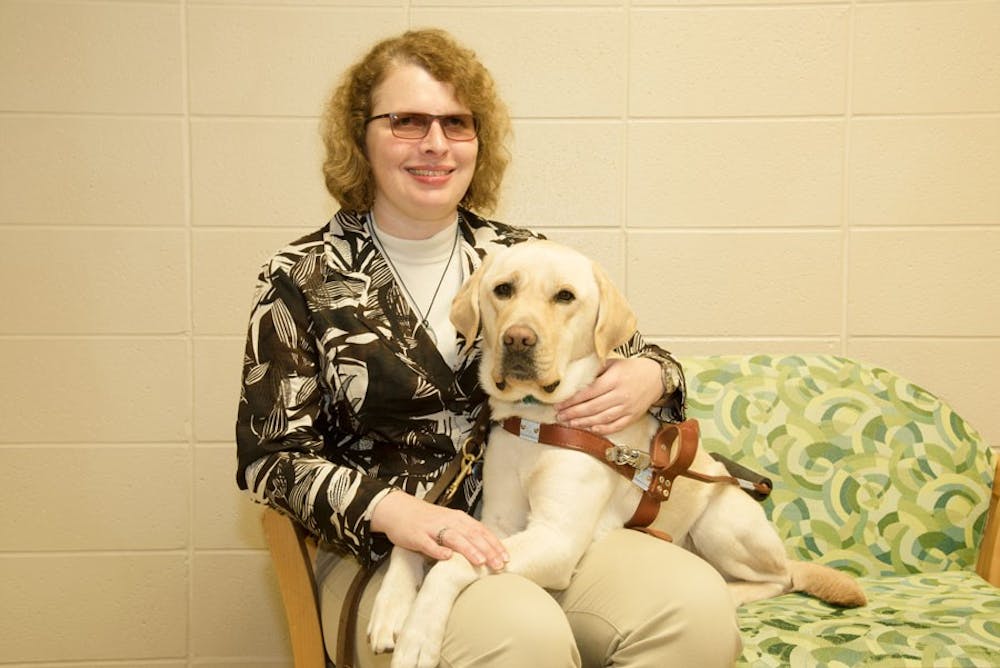By Becca Robb | Echo
Kathy Nimmer wasn't born blind. She wasn't blind when she learned to write or when she first dreamed of becoming a teacher. And losing her sight while she was in second grade didn't stop her from realizing this dream.
Nimmer-Indiana's 2015 Teacher of the Year-has taught English and creative writing at Harrison High School in West Lafayette for 24 years and spent this past year touring and speaking at events around the country.
Last night's event in the Recital Hall, hosted by Taylor's Kappa Delta Pi chapter, was Nimmer's 226th speech since this August. Before the event she said she's always wanted to be a teacher.
"I wanted to be more than a purveyor of information to students, because that's what (my) teachers were to me," Nimmer said. "They were supportive and they loved me enough to help me through the dark times when I was upset about losing vision or I was struggling to learn Braille, and I wanted to find a way to be that anchor for my students, too."
When she first started teaching, Nimmer said she tried to make it seem like her blindness wasn't an issue. She felt uncomfortable reading Braille in front of the class or walking around the room for fear of bumping into something. This forced her to stay behind the podium and remain emotionally distant from her students, which allowed her classes to get out of hand.
This continued until a student got so wild that he threw his book bag through a window, shattering the glass. At this point, she decided to let go of her anxiety about her blindness and let it be more public.
Nimmer said that, while blindness is central to her story, she doesn't like to give it center stage.
"(My students will say,) 'Yep, Miss Nimmer, she's tall, and she has curly hair and she's blind.' It's not the first thing in their focus because it's not the first thing in my focus . . . I move around a lot, and if I bump into something I just say, 'Oh, there's another bruise!'"
From the appearance of her classroom, it's obvious that this is no ordinary class.
Instead of raising their hands to answer questions, students call out their names. Nimmer uses Braille and a talking computer to take notes and read students' writings. And her guide dog, Nacho, spends his school days resting on a small memory-foam bed.
"It's very much part of my philosophy to create a warm and respectful and positive atmosphere," Nimmer said. "Because when you have all of that, then problems don't develop as easily when the students like being there and when the teacher knows who the students are and cares (about them)."
Instead of writing on the board, Nimmer enjoys talking with her students and facilitating class discussions, as speech is one of her strongest means of communication. In order to take care of more challenging visual tasks, her school hired a teacher's aid to help her input grades, create handouts and make visual presentations.
She considers it a privilege to be a blind teacher, because she can't judge her students by what they look like, whether they look pretty, stylish or sleepy.
In her speech, Nimmer encouraged audience members to set visions for where they want to go in life. She said that if she could walk through a door and instantly become sighted, she would have a hard decision to make because of the richness evident in her life.
"Blind or not, we're all carrying baggage . . . (But) our value is not in what we can and cannot do. We are all children of God and that's where our innate value is."





